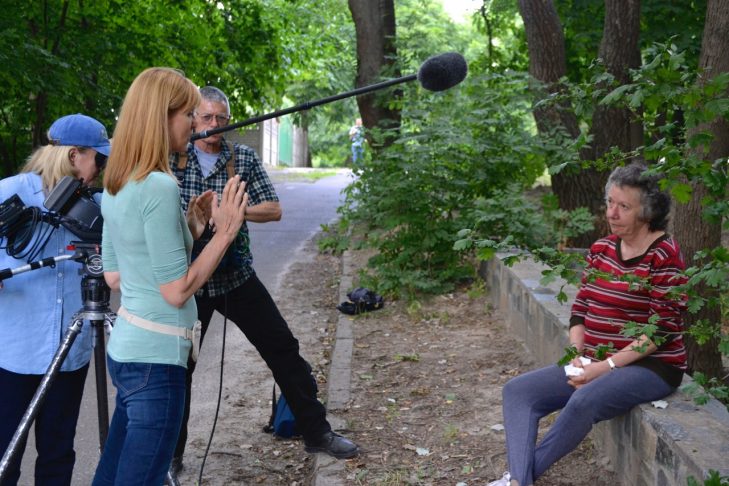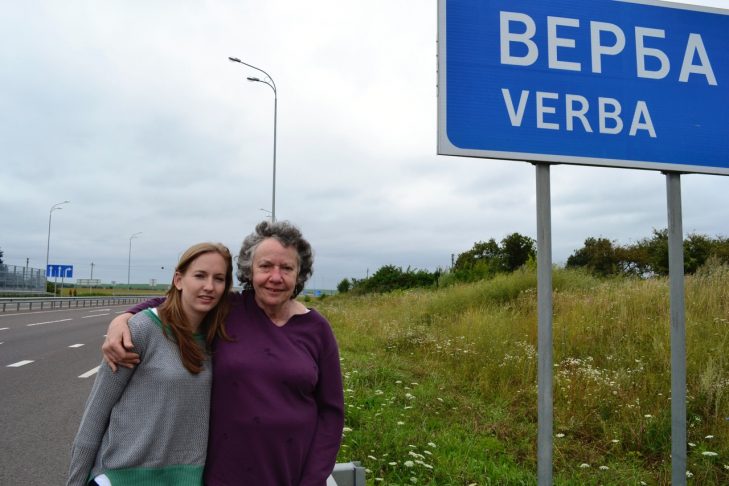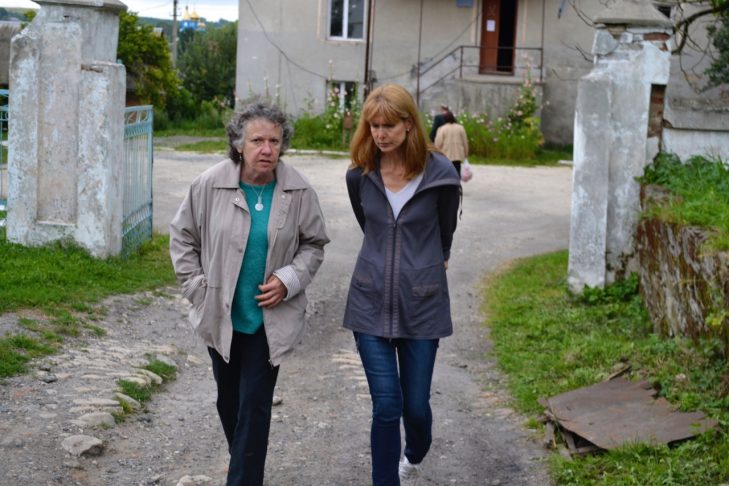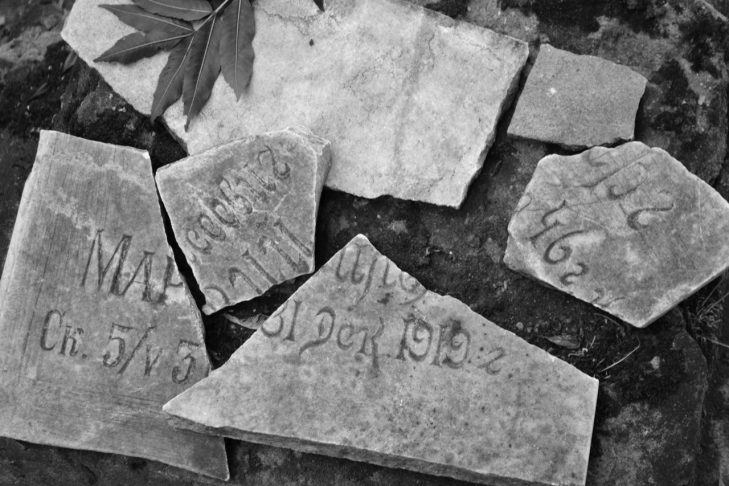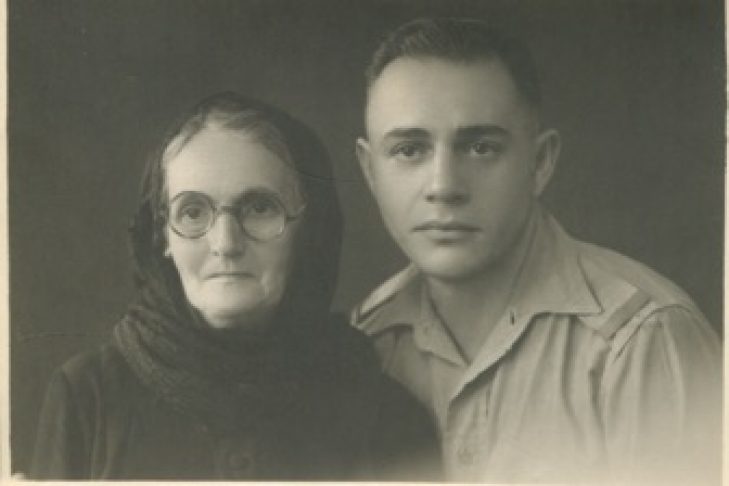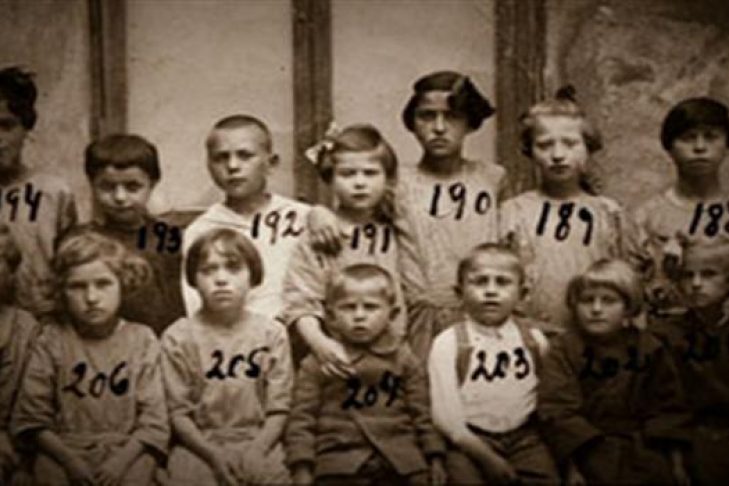Following the Russian Revolution, anti-Jewish pogroms erupted from 1917 to 1921. With a death toll estimated at 300,000, the period is considered by some as a precursor to the Holocaust. The Jews who suffered included Feiga Shamis, a mother of 12 who fled from town to town to escape anti-Semitic violence. In Warsaw, she placed her four youngest children in an orphanage, but when two of them, Mannie and Rose, were offered a chance to emigrate to South Africa in 1921 as part of a rescue of Jewish children, Shamis let them go. This decision has long occupied the mind of her South African granddaughter, Judy Favish.
While Favish never knew her grandmother, she has connected with her in multiple ways. She read an extended letter Shamis wrote to her children, visited her family’s Ukrainian homeland and learned about the post-World War I time period—all shared in the 2018 film “My Dear Children,” co-directed and co-produced by award-winning journalists LeeAnn Dance and Cliff Hackel. The film was shown at the Middlebury New Filmmakers Festival in August. The film’s website describes it as “the first in-depth, scholarly documentary about the tragedy of pogroms.”
“A lot of people are sort of blown away by this history they did not know about,” Dance said. “A lot of them, too, are so grateful to understand the background to their own family’s story…. They’ll say, ‘We had no idea,’ or, ‘It’s the story of my grandfather, my grandmother’…. It also really resonates with non-Jewish audiences too, who are really struck by the linkings of this period of violence and what happened 20 years later with the Holocaust.”
“We selected ‘My Dear Children’ for its historical significance, its director’s storytelling skill, its solidly researched backbone and its sturdy production values,” Lloyd Komesar, producer of the Middlebury New Filmmakers Festival, wrote in an email. “The film has great integrity in its presentation, as well as palpable drama not always found in this type of documentary.”
Feiga Shamis lived through a complex time. She was born in 1878 in Ukraine, which was part of the Pale of Settlement, an area where the tsars forced Jews to live. The area had “the largest population of Jews ever,” Dance said. She noted that diverse ethnic groups such as Ukrainians and Poles coexisted with Jews there before deadly, disruptive pogroms by younger generations in 1881 and from 1903-1906. Then came World War I, leading to the fall of the tsar, the rise of Lenin and the Russian Civil War between Red and White armies. “No group from that time period can claim to be well-behaved and not anti-Semitic,” Dance said. During this period, Shamis’s husband died from typhoid, and she lost a son to the pogroms.
The story of the period was unfamiliar to Dance when she first read “Shalom Shalom: My Dear Children,” a book comprising a 174-page letter that Feiga Shamis sent to her children Mannie and Rose in South Africa. Although neither read the letter, having lost their knowledge of the Yiddish in which it was written, Mannie’s daughter, Judy Favish, had it translated, and it became a book. To see where her grandmother once lived, Favish traveled to Ukraine with a group that included her daughter, Tess Peacock, and Dance. They met the sole survivor of the Jewish community of the town of Shumsk, and visited what Dance called devastated and decrepit Jewish cemeteries. Throughout, Dance noticed “the total absence of Jewish life.”
It was an emotional visit for Favish, launching five years of work on the film. “Judy is very inspirational, one of the most determined people I’ve ever met,” Dance said of the anti-apartheid activist-turned-university administrator. “She’s just a good soul. It’s the same thing with her children. There’s so much compassion and caring in that family.”
These qualities would be needed as Favish grappled to understand her grandmother’s decision to send 8-year-old Mannie and 10-year-old Rose across the globe in a rescue of 177 Jewish children organized by South African Jewish philanthropist Isaac Ochberg. Mannie did not see his mother again until decades later. She emigrated to Mandatory Palestine, and he visited her briefly while serving in the Middle East in World War II.
“[Mannie] always wondered, ‘Why did she pick us, why me and Rose?’” Dance said, adding that in the film, “[Mannie] says a line to his legal assistant—‘I must have been a very naughty boy for her to send me away’—that’s very haunting.”
The documentary shows the grim fate of many Jews who stayed, through photos of pogrom victims and never-before-seen footage of an actual pogrom. Dance found scholars to explain the period’s horrors, including Brandeis University researcher Irina Astashkevich, who was able to assess Feiga Shamis’s book as a historical document. Dance described Astashkevich as indispensable.
Dance said there remains a lack of knowledge about this time period. But with each screening of her film, more people become familiar with Feiga’s story and the tragic era it reveals.
“My Dear Children” will be screened in Boston Nov. 17 and Nov. 20. The Nov. 17 screening will be at Center Makor in Brookline in conjunction with “The Jewish Experience: Pogroms,” an exhibit of rare photographs of Russian Civil War-era pogroms curated by photographer Diane Covert. The Nov. 20 screening will be at Congregation Mishkan Tefila in Brookline, with LeeAnn Dance and Diane Covert attending in person. Find more information here.



